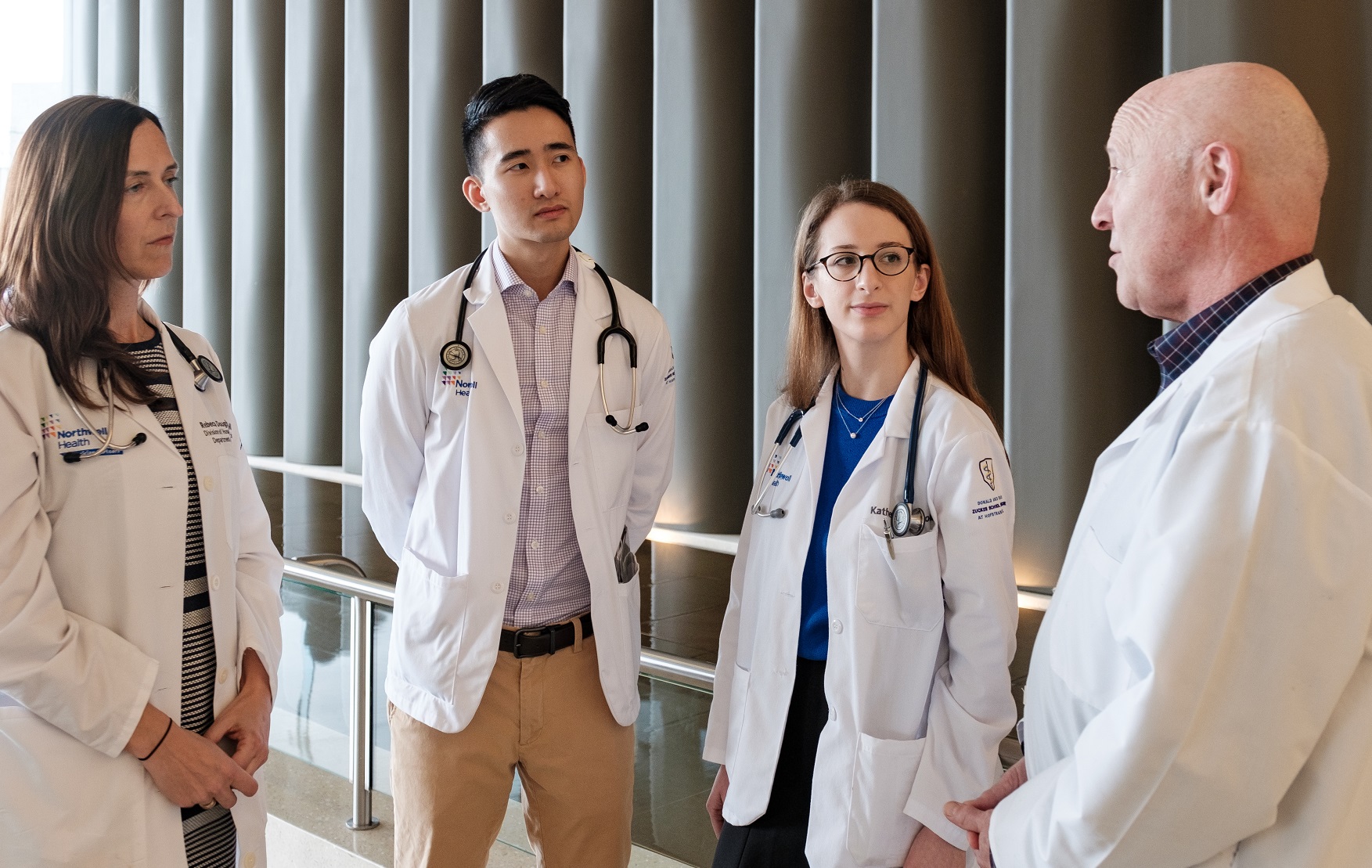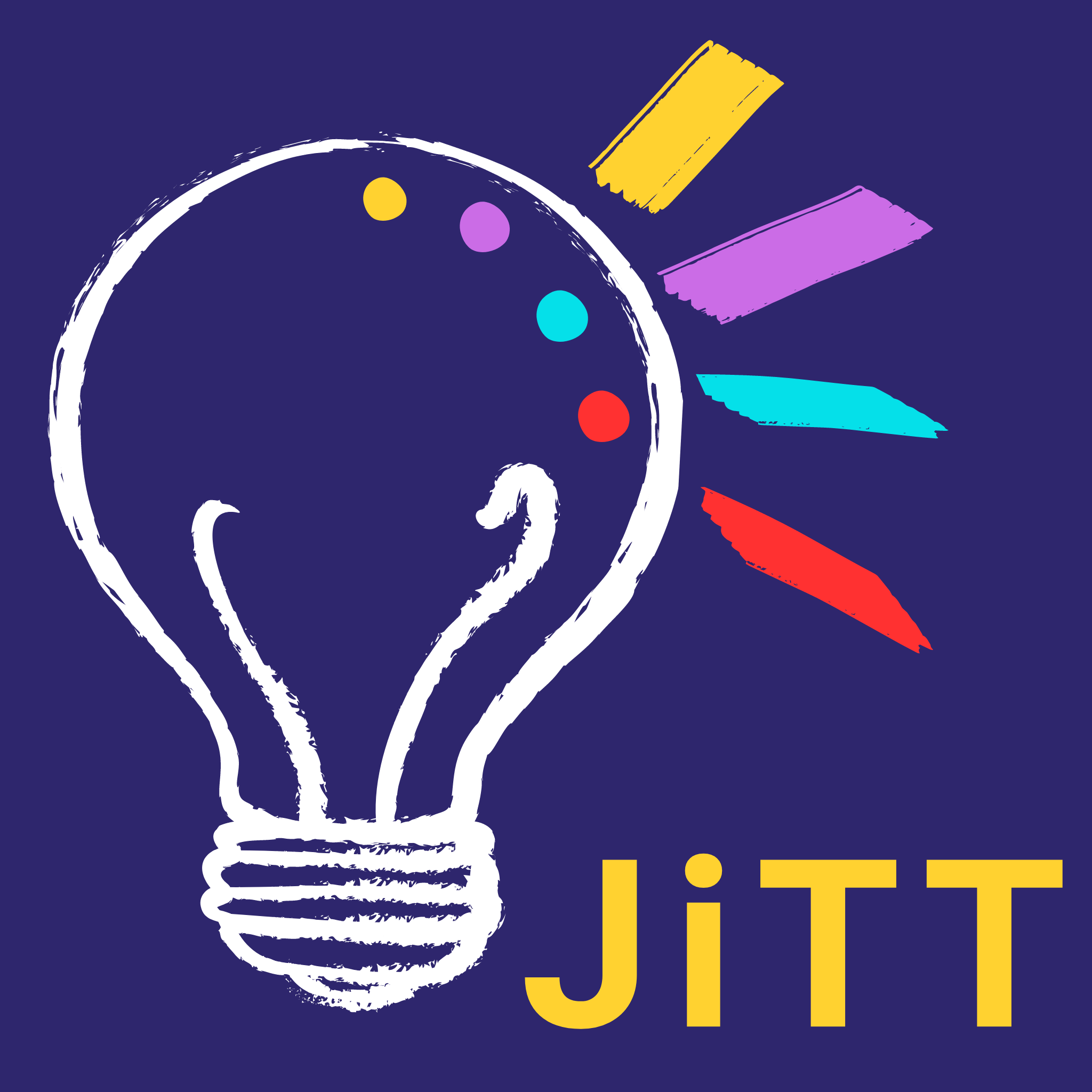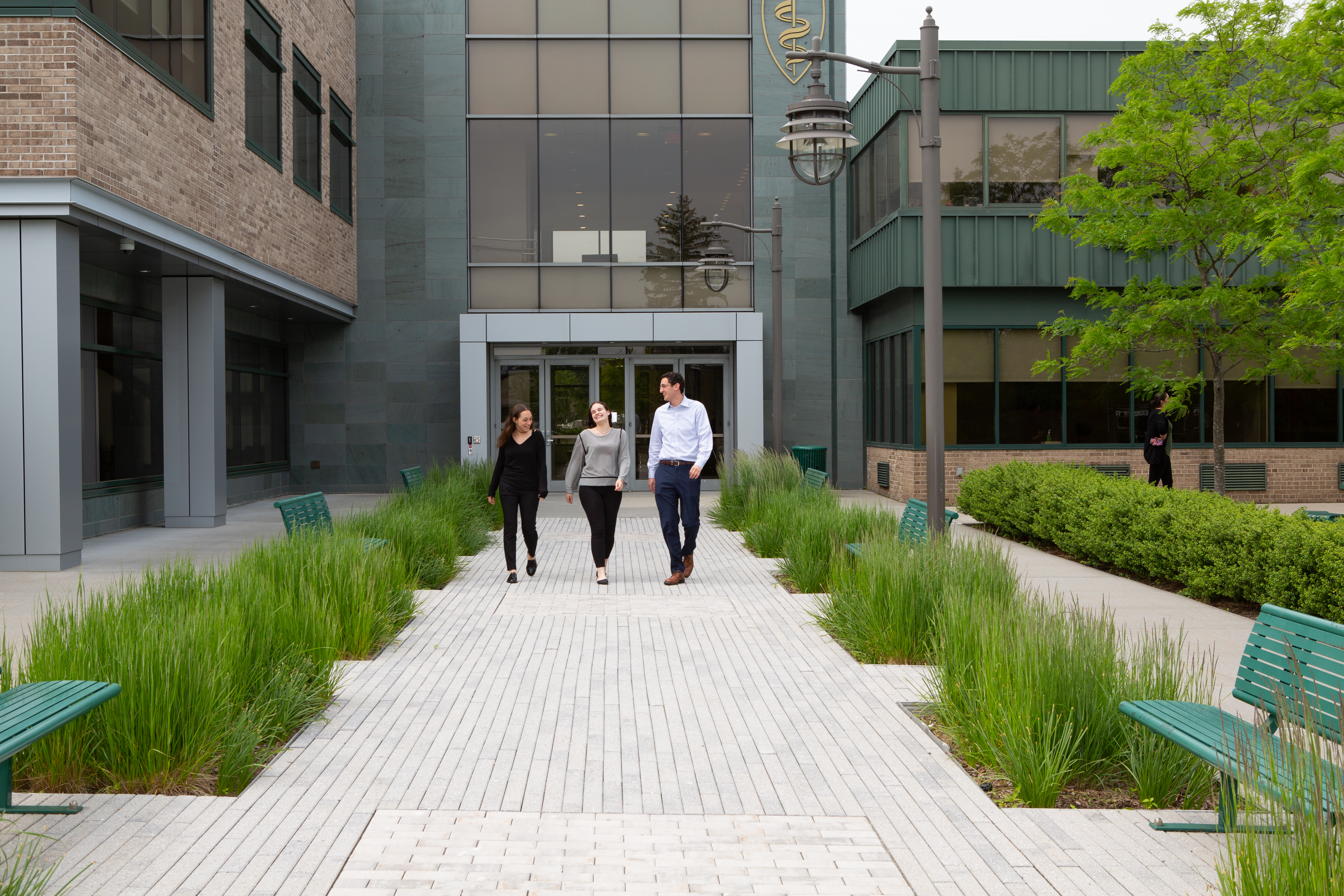About Us
In partnership with the Office of Faculty Affairs at the ZSOM, we support our faculty, both as individuals and as members of ZSOM and Northwell Health academic departments, to ensure maximum satisfaction in their roles as educators. Most of our faculty development programs focus on supporting and enhancing faculty knowledge and skills specific to health professions education. Specifically, our professional development programs offer education in the areas of curriculum development, teaching and learning, assessment, leadership, and research and scholarship.
Writing Abstracts to Impress and Impact
Watch Now & Start Writing Better Abstracts
Time: 4 minutes to view
New Year, New You, Now Heard
Ready to Write Abstracts That Impress and Inspire?
Watch the Full Playlist Now
News
Educational
Excellence at Zucker SOM
An essential learning program for all faculty designed to introduce Zucker SOM educational philosophies, curriculum, and pedagogies to uphold professional standards for medical educators.
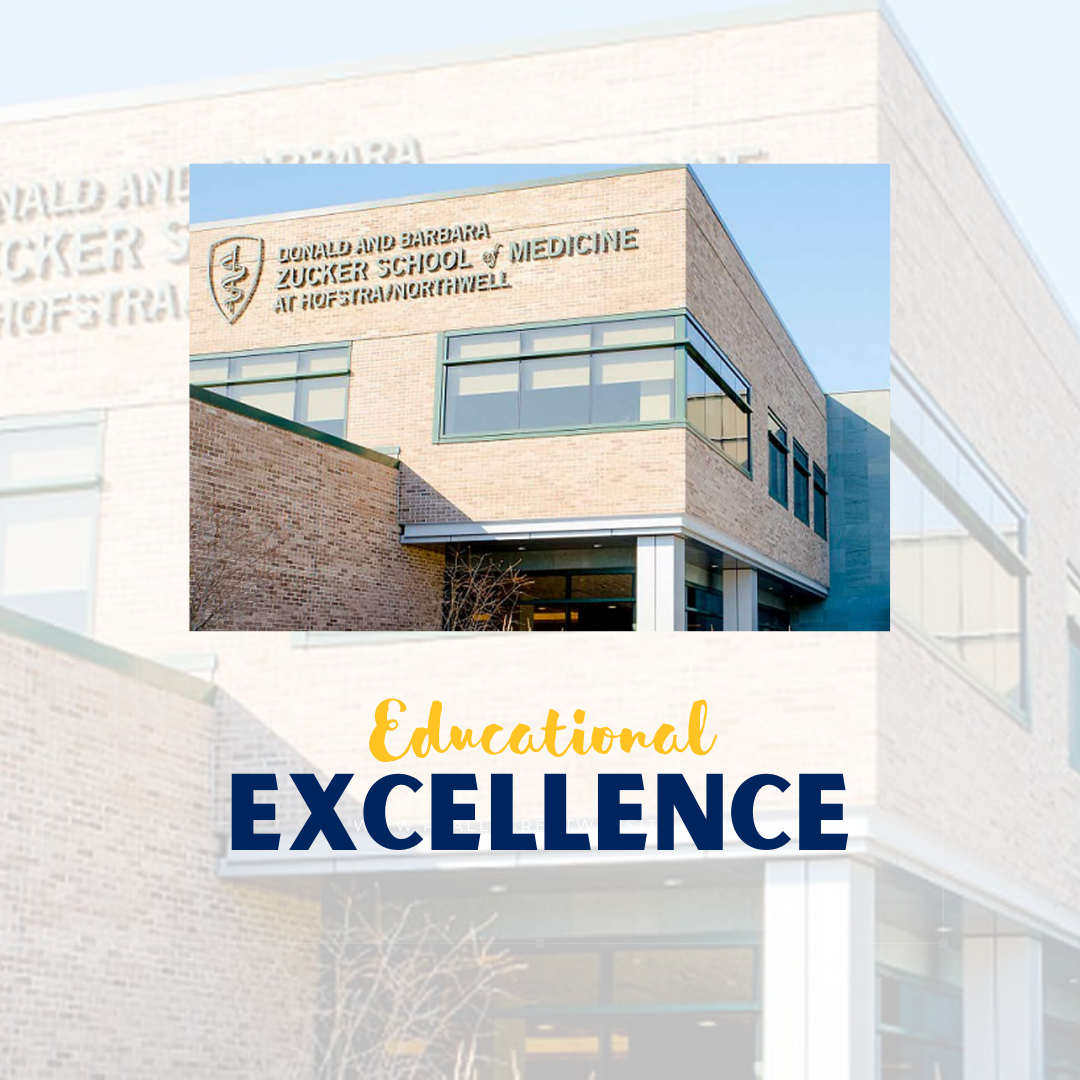
Resources
More resources for faculty
Design and Delivery of Online Education
- Challenging Assumptions About "Moving Online" In Response to COVID-19, and Some Practical Advice
- Eight Steps for a Smoother Transition to Online Teaching
- Harnessing the Power of Zoom for Teaching and Learning
- Integrating Telemedicine Into Training
- LGS - PowerPoint Template for Knowledge in Action
- Online Education is the New Telemedicine
- Pedagogy in the Age of Zoom
- Remote Teaching LibGuide
- Session Recordings hosted by the Generalists in Medical Education and the GEA (10/13/20 and 10/20/20)
- Pedagogy in the Age of Zoom
- Tips for Boosting Your Resilience In This Time of Crisis
- The Transformational Effects of COVID-19 on Medical Education
- The Difference Between Emergency Remote Teaching and Online Learning
Educational Appetizers
- Educational Appetizer I: Video Quizzes
- Educational Appetizer II: Large Group Session Template for Knowledge in Action
- Educational Appetizer III: Ice Breakers
- Educational Appetizer IV: Requesting Student Feedback
- Educational Appetizer V: YouTube your Session or Prework
- Educational Appetizer VI: Pace Your Session
- Educational Appetizer VII: Securing Data from PollEverywhere
- Educational Appetizer VIII: Keep up with the Trends: Write a Review
Health Humanities
- Zucker School of Medicine Humanities in Medicine Program/Osler Society
- Narrateur
- The Narrative Perspective and Reflective Writing: An Elective in Medical Humanities Syllabus
- Article Collections
- Designing and Implementing a Medical Humanities Longitudinal MS4 Elective
- Health Humanities PowerPoint
- Health Humanities Curricular Toolkit
- Health Humanities Journals
- Developing New Academic Programs in the Medical/Health Humanities: A Toolkit to Support Continued Growth
- The Fundamental Role of Arts and Humanities in Medical Education
Just in Time Teaching (JiTT)
- Join the Just in Time Teaching TIPs (JITTs) Innovation to support learning in the clinical environment: See video
- Just in Time Teaching (JiTT) PowerPoint
- Impact of using infographics as a novel Just-in-Time-Teaching (JiTT) tool to develop Residents as Teachers
- Perceived and Unperceived, Pull and Push Taxonomy (JiTT)
- The Learning Loop: Conceptualizing Just-in-Time Faculty Development
- Social Determinants of Health JiTT User Guide
- Educational excellence at the Zucker School of Medicine
JiTT Download App
Medical Education Articles
- Academic Medicine (Last Page)
- Academy of Medical Educators
- Adaptive Expertise
- Ambulatory Care
- Appreciative Inquiry
- Art and Medical Education
- Assessment
- Assessment Frameworks
- Assessment of Clinical Learning
- Basic Science
- Based Assessment and Education
- Bedside and Surgical Teaching
- Burnout and Resilience
- Case Based Learning (CBL)
- Clerkship in Clinical Setting
- Clinical Assessment
- Clinical Education
- Clinical Education: Guides and Strategies
- Clinical Reasoning
- Clinical: Preceptor Role and Education
- Clinical Self-Regulated Learning
- CME Articles
- Cognitive Overload
- Collaborations in Education
- Competency Based Education (CBE)
- Concept Maps (CM)
- Curriculum
- Decision making with Uncertainty (EBM)
- Direct Observation
- Diversity in Medical Education
- E-learning
- Early Clinical/Longitudinal Integrated Clerkship (LIC)
- Educational Research and Scholarship
- Educational Research Theory
- Educational Research Guidelines
- Educational Theory
- Electronic Health Record
- Empathy in Medicine
- End of Life and Palliative Care
- Ethics
- Faculty Development
- Feedback
- Graduate Medical Education(GME)
- GME: Organization and Administration
- Health Professional Ethics and Education
- Hidden Curriculum
- Interpersonal and Communication Skills
- Interprofessional Education
- Leadership
- Learning Environment
- Learning through Teaching
- Medical Education
- Medical Humanities
- Medical Humanities: Medical Students
- Mentorship
- Milestones and EPA
- Milestone Development
- Mindfulness
- Narrative Feedback
- Nutrition and Medical Education
- Online E-learning
- OSCE
- OSTE
- Outpatient Clinicals
- Patient as Teacher
- Patient-Centered Care
- Patient Centered Communication
- PE Physical Exam
- Peer Review
- Perspectives in Clinical Education
- Portfolios
- Preceptors
- Procedural Teaching
- Professionalism
- Professional Development
- Professional Identity Formation
- Professional Performance
- Program Evaluation
- Programmatic Assessment
- Psychological Safety
- Qualitative Research
- Quality & Effectiveness
- Quantitative Research
- Reflective Practice
- Reviews in Research
- Self Regulated Learning
- Simulation
- Small Group Teaching and Learning
- Social Determinants of Health
- Social Media
- Student as Teacher
- Teacher Effectiveness
- Teaching in Clinical Setting
- Teaching and Learning
- Team Based Learning
- Telehealth
Clinical Teaching
Teaching and learning directly involving patients is core to health professions' clinical training. These experiences will occur in diverse clinical settings across the continuum of healthcare. In addition, students can experience clinical care scenarios with standardized patients and simulation.
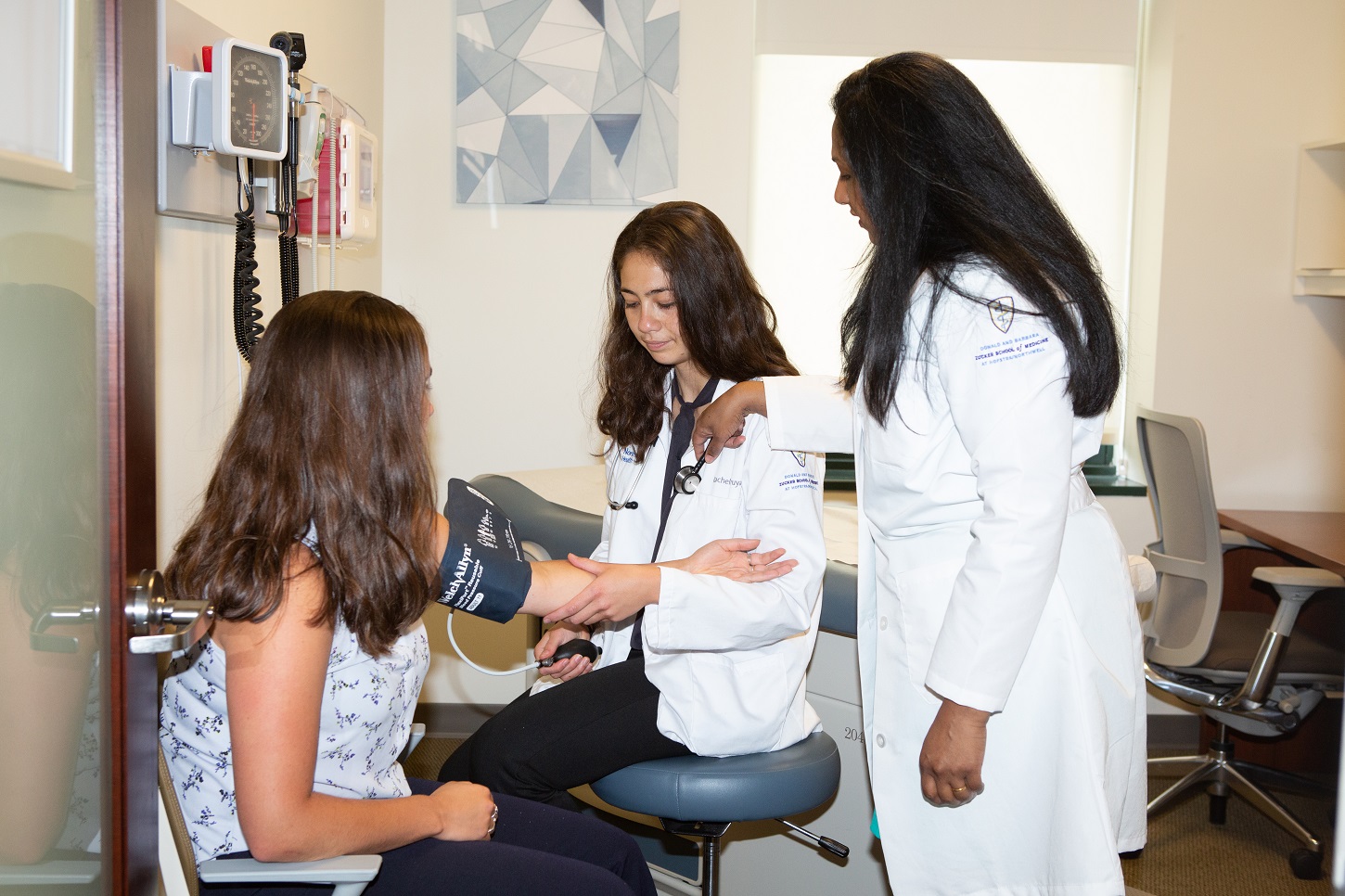
Active Learning
Classroom Teaching
Active learning occurs when a person/learner takes control of their learning experience. Since understanding information is the key aspect of learning, it is important for learners to recognize what they understand and what they do not.
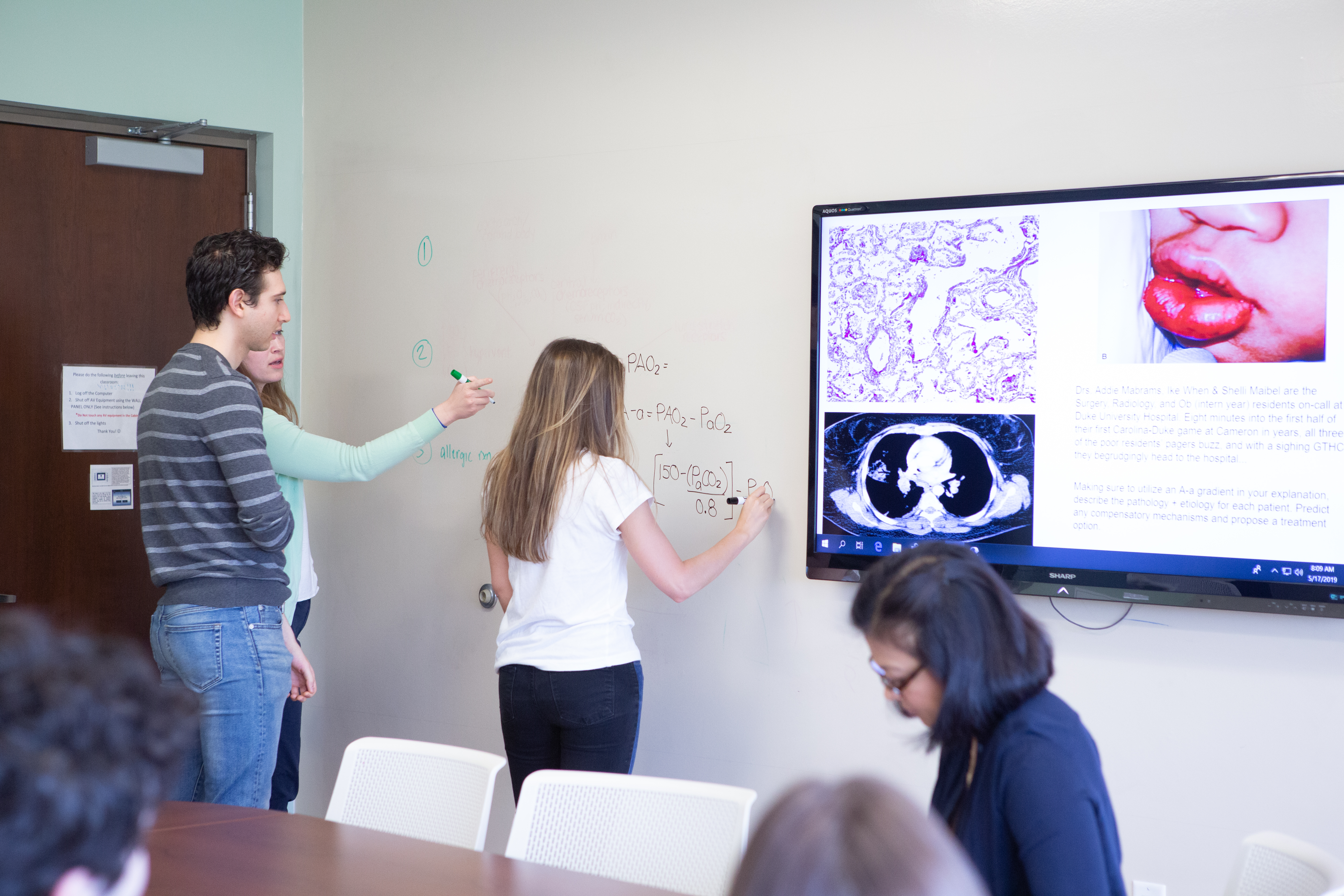
Northwell Health
Faculty Development Council
IPEC, Feedback, Faculty Mentoring, Teaching and Learning
